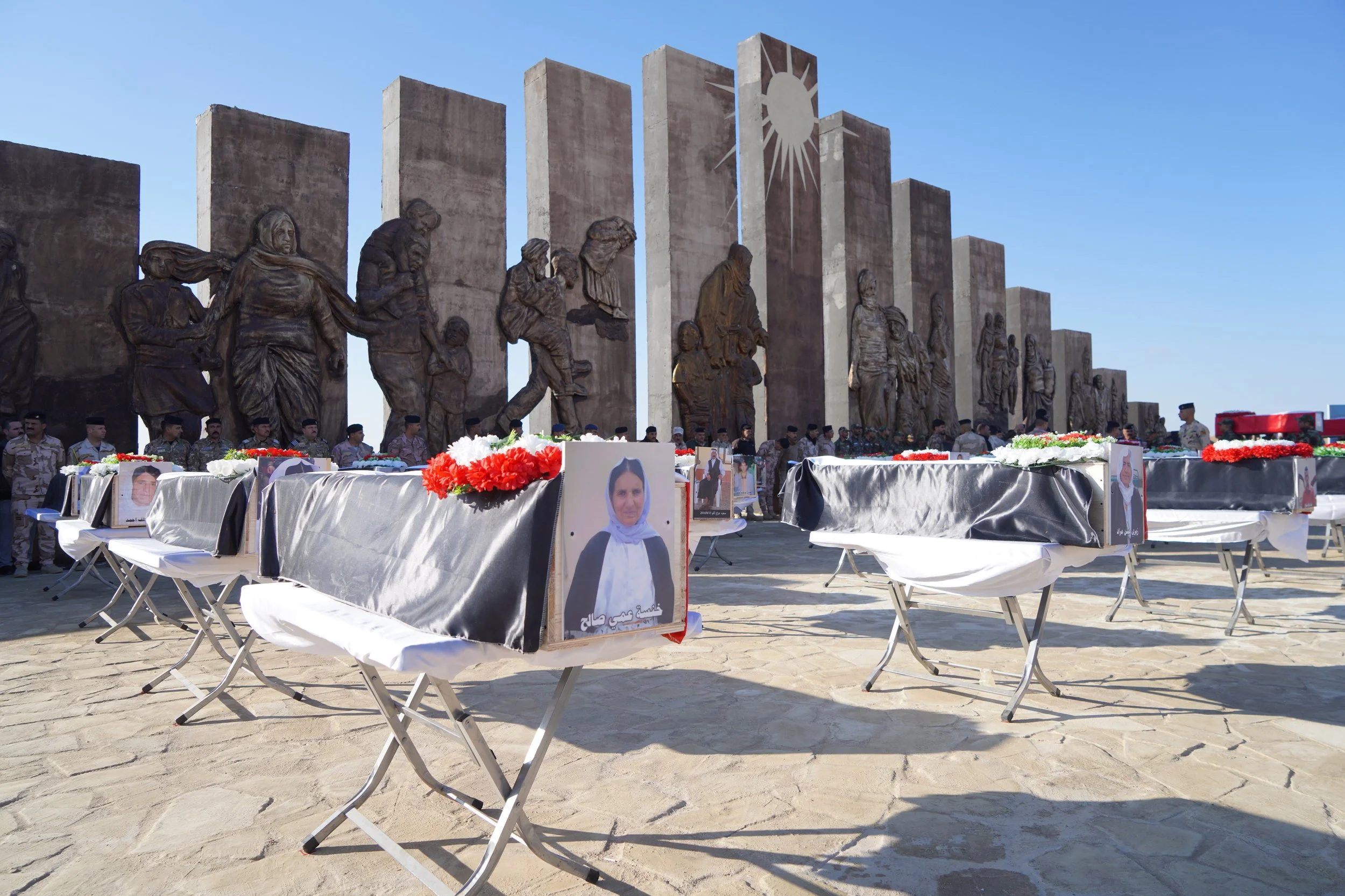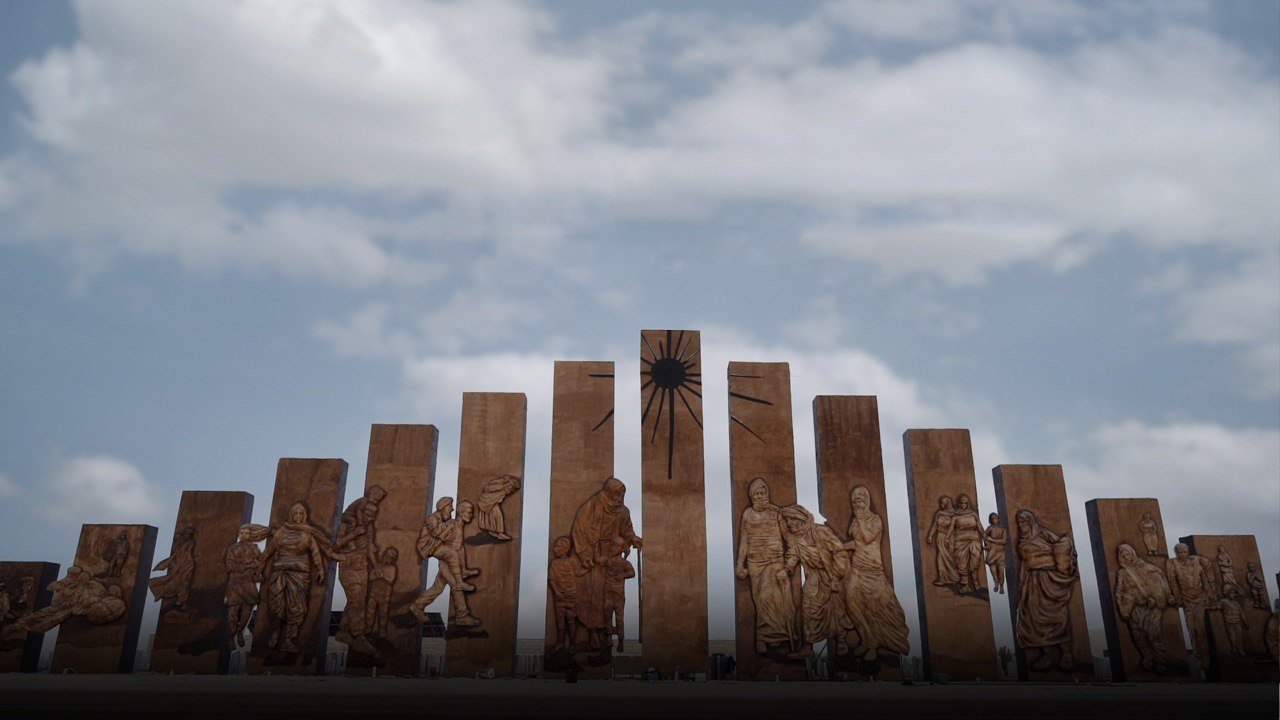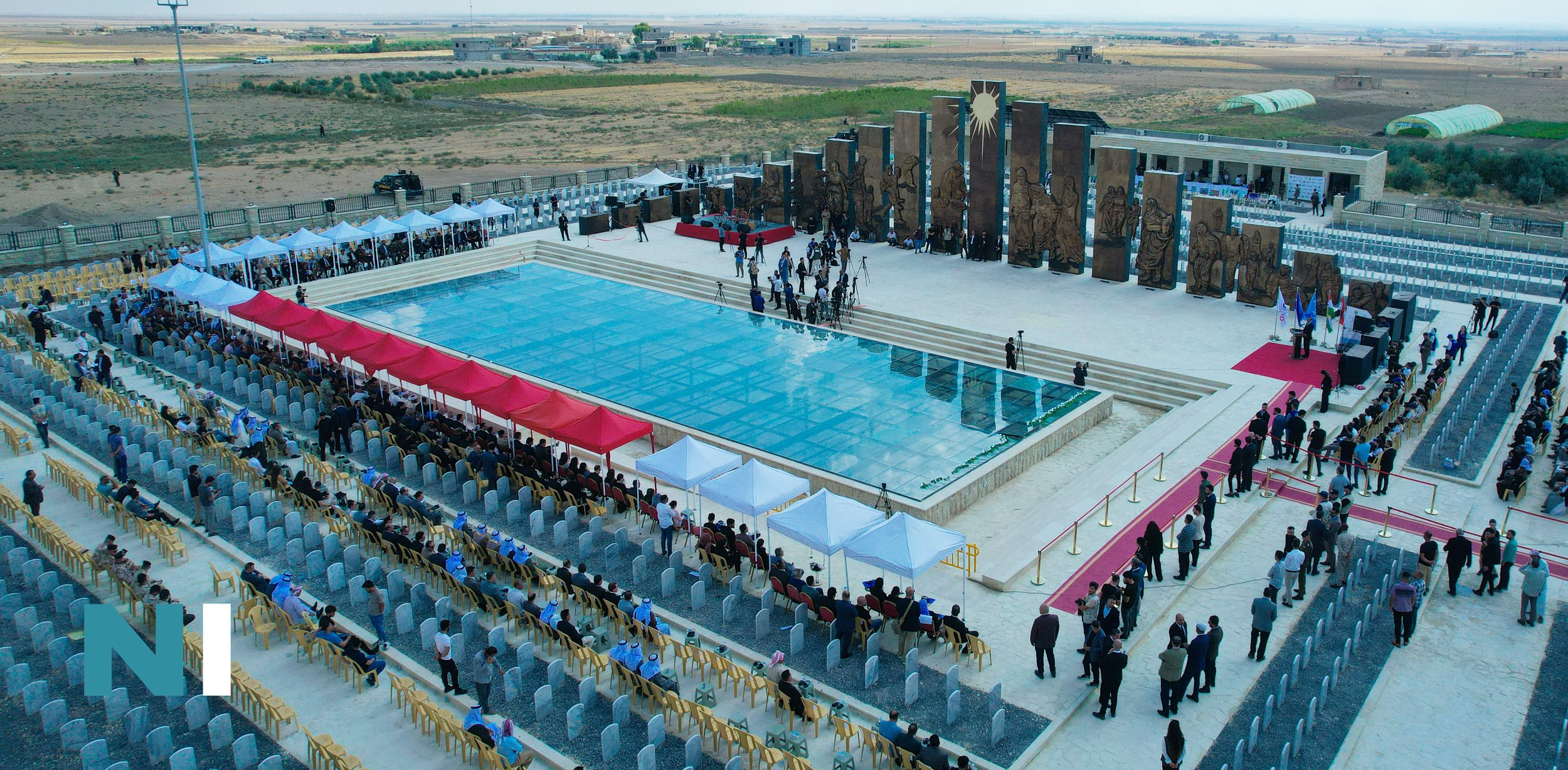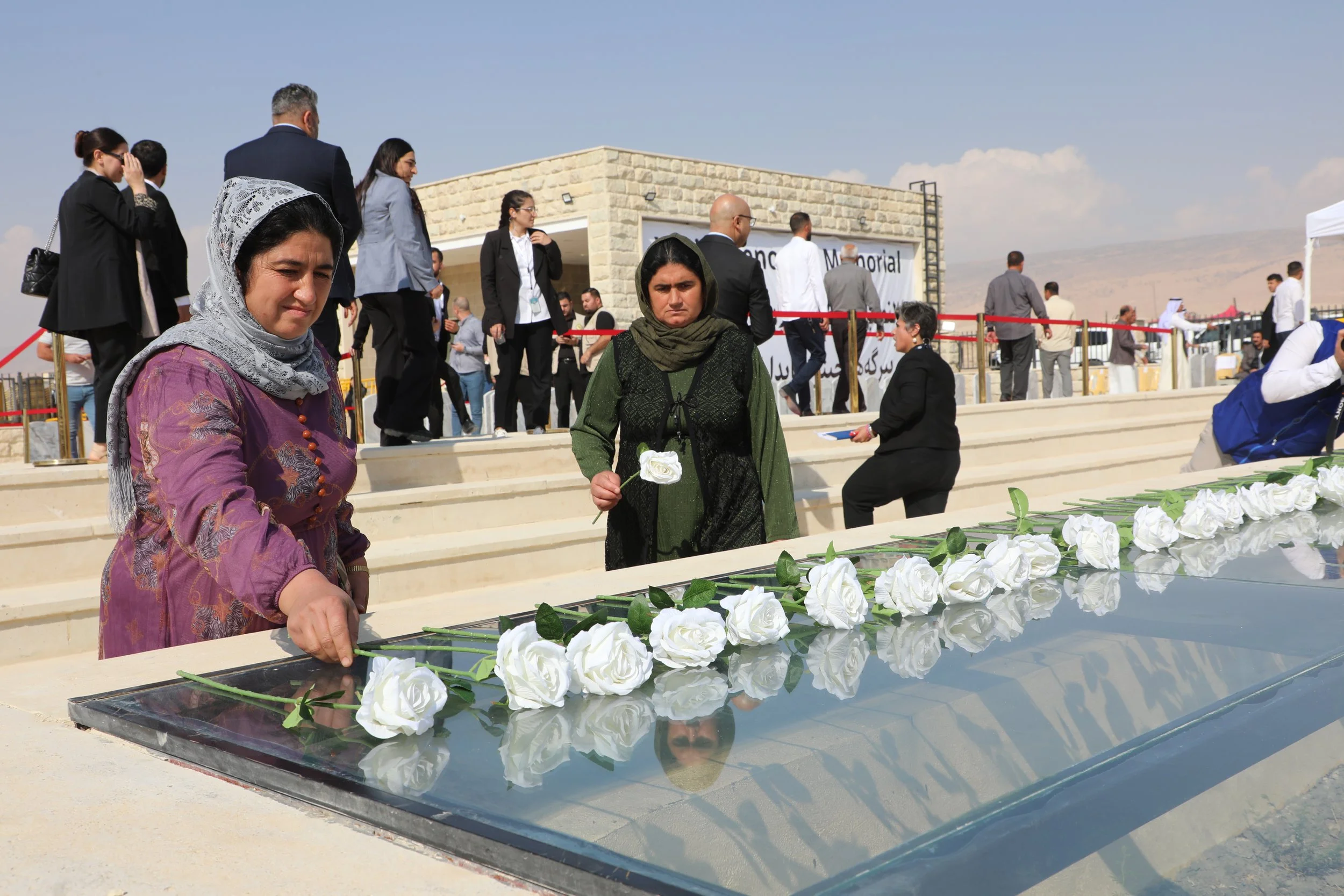
“When survivors seek justice, they look for someone to give them
hope that justice is possible.”
“Mother and Justice” – A Mobile Memorial
Honoring the Resilience of Survivors Worldwide and Mobilizing for Justice and Accountablility
The year 2024 marks the 10th anniversary of the Yazidi Genocide, a somber milestone that calls for reflection, remembrance, and action. In light of the anniversary, Nadia Murad and Nadia’s Initiative are undertaking the creation of a mobile memorial dedicated to survivors worldwide. The purpose of this memorial is to raise awareness about the plight of survivors of conflict-related sexual violence, and to serve as a catalyst for justice and accountability. The memorial, a life-sized sculpture of a mother and her children bound with the scales of justice, is scheduled to be completed by the summer of 2024 and will become a focal point for Nadia’s global advocacy on behalf of survivors. The official title of the memorial will be unveiled after the memorial is completed.
The sculpture is inspired by the first Yazidi survivor who won a trial against a member of ISIS, an important example of holding perpetrators accountable for their crimes. While the memorial will highlight the harrowing story of a Yazidi survivor, it will be dedicated to survivors worldwide, standing as a testament to their resilience and serving as a powerful tool for advocacy on their behalf.
The purpose of this memorial is to raise awareness about
the plight of survivors of conflict-related sexual violence,
and to serve as a catalyst for justice and accountability.
Background
The atrocities committed against the Yazidis during the genocide were severe and widespread, with over 6,400 women and children abducted, and the women being subjected to systematic sexual violence. ISIS's actions were not only acts of terror but also calculated measures to destroy the Yazidi community. Despite efforts to address the aftermath of the genocide, justice remains elusive for the vast majority, and over 2,700 Yazidi women and children remain in captivity.
In order for survivors to obtain the justice they deserve, perpetrators must be held accountable for their crimes. In the Yazidi case, the United Nations Investigative Team to Promote Accountability for Crimes Committed by Da’esh/ISIL’s (UNITAD) has gathered clear and convincing evidence of the genocide carried out by ISIS, and yet there have been no convictions to date of ISIS fighters for international crimes by Iraqi courts or an international tribunal. However, there have been glimmers of hope when it comes to holding ISIS accountable at the state level, particularly in Germany. To date, German courts have convicted three ISIS members of genocide for their crimes against the Yazidis, and have convicted five additional ISIS members of crimes against humanity and war crimes. When the first ISIS member was convicted of genocide, Germany marked a meaningful milestone, affirming the importance of accountability in delivering justice to survivors. This conviction and important step would not have been possible were it not for the bravery of the Yazidi survivor who was the co-plaintiff in the case.
While the experience of Yazidi survivors under ISIS is a horrific example of conflict-related sexual violence, it is tragically not a unique occurrence in history. Throughout a variety of conflicts worldwide, sexual violence has been used as a weapon of war, aimed at humiliating, dominating, terrorizing, and displacing populations. The practice spans continents and decades, affecting communities in the Balkans, Rwanda, and more recently in conflicts in Myanmar, the Democratic Republic of Congo, and Ukraine. The widespread and systematic nature of these crimes in different contexts highlights a bleak reality: the use of sexual violence in conflict is a global issue, transcending cultural, religious, and regional boundaries. It underscores the urgent need for advocacy and international support in addressing this issue and ensuring justice for all survivors, regardless of their community or identity
Design and Significance
The memorial will be a life-size bronze sculpture of a mother and her children bound with the scales of justice. The woman who will be featured in the sculpture is a Yazidi survivor who won a trial against ISIS in Germany. This was the first trial, and the first conviction, of an ISIS member for genocide anywhere in the world. Her children, who will also feature prominently, were killed by ISIS during the genocide.
The bravery of this survivor stands as a testament to justice and accountability, and the verdict provides a model for how governments can and should respond to the instances of conflict-related sexual violence. The sculpture will be dedicated to the woman and all survivors, and will serve as both a symbol and tool for justice and accountability.
Beyond serving as a catalyst for justice and accountability, the memorial can also be thought of as a form of collective reparations. Such reparations are focused on delivering a benefit to groups (e.g. survivors) who have suffered from crimes (e.g. conflict-related sexual violence) and violations of their rights and are meant to address the common shared impact of such violations. Memorialization of this kind is a key component in bringing about justice and healing for survivors.
The memorial is being created by Rebecca Hawkins, an accomplished sculptor, with input from Nadia Murad.
Timeline: Convictions of ISIS Members
“This verdict is a win for survivors of genocide, survivors of sexual violence, and
the entire Yazidi community. Thank you to Germany for today’s historic conviction.
Germany is not only raising awareness about the need for justice but is acting on
it. Their use of universal jurisdiction in this case can and should be replicated by
governments around the world.”




